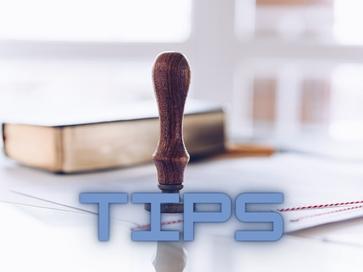Is a translator required at the notary’s office if I want to buy a house? The notary is obliged to engage a translator when buying or selling a house, at your expense, if either the buyer or the seller has no or insufficient command of Dutch. If the notary does not do so, he or she can be held liable, so the notary will not simply deviate from this.
> Read more about a notary when buying a house
A translator for international transactions
As with buying a house, an interpreter may also be needed for international transactions: If one of the parties involved in a notarial deed (for example, a deed of sale or a lease) has a foreign nationality or lives in another country and does not understand the language of that country, a translator may be needed to translate the contents of the deed into a language the party involved understands.
The law regarding a translator when buying a house
According to the law, if one of the appearing parties does not sufficiently understand the Dutch language, an interpreter (who, if possible, is also a sworn translator) must also be present at the signing of the deed, who translates the substantive content of the deed (art. 42 paragraph 1 Wna). In addition to the notary and the parties present, the interpreter also signs the deed, declaring that he has translated everything said by the notary and the parties present.
Prior knowledge of deed contents. The notary is obliged to ensure that all parties involved in the deed are allowed to familiarise themselves with the contents of the deed before signing (art. 43 paragraph 1 Wna). To this end, a draft deed is sent by the notary in good time to all parties involved (and to the relevant advisers). This offers the opportunity to comment on the contents of the deed if there are inaccuracies or to make last-minute amendments to the contents of the deed.
Translation necessary
If a foreign contracting party does not master the Dutch language, he will not be able to read the draft deed. To know whether its content is acceptable to him, he must rely on being correctly and expertly informed about it by an adviser or by the other party (who has an opposite interest!). In many cases, a literal translation of the draft deed then turns out to be necessary.
Translation costs
The translation of the draft deed or other documents and the presence of an interpreter-translator at the signing of the deed involves additional costs. How high these costs are depends on the length of the legal documents and the time required by the interpreter to translate the deed. For some languages, it is more difficult to find an interpreter than for other, more common languages. In addition, Chinese and Arabic languages, in particular, have many dialects that are very different from each other. Depending on all these factors, the cost of a sworn interpreter-translator (for a standard deed) may range from € 500 to € 1,000 (excluding VAT).
Other blogs for notary
Top 7 best tips on finding a notary
What is the purchase agreement
Five steps: When is a house definitely sold
💡 Need help with finding a suitable notary?
We provide you with free help and all the advice you need to find the best notary.




